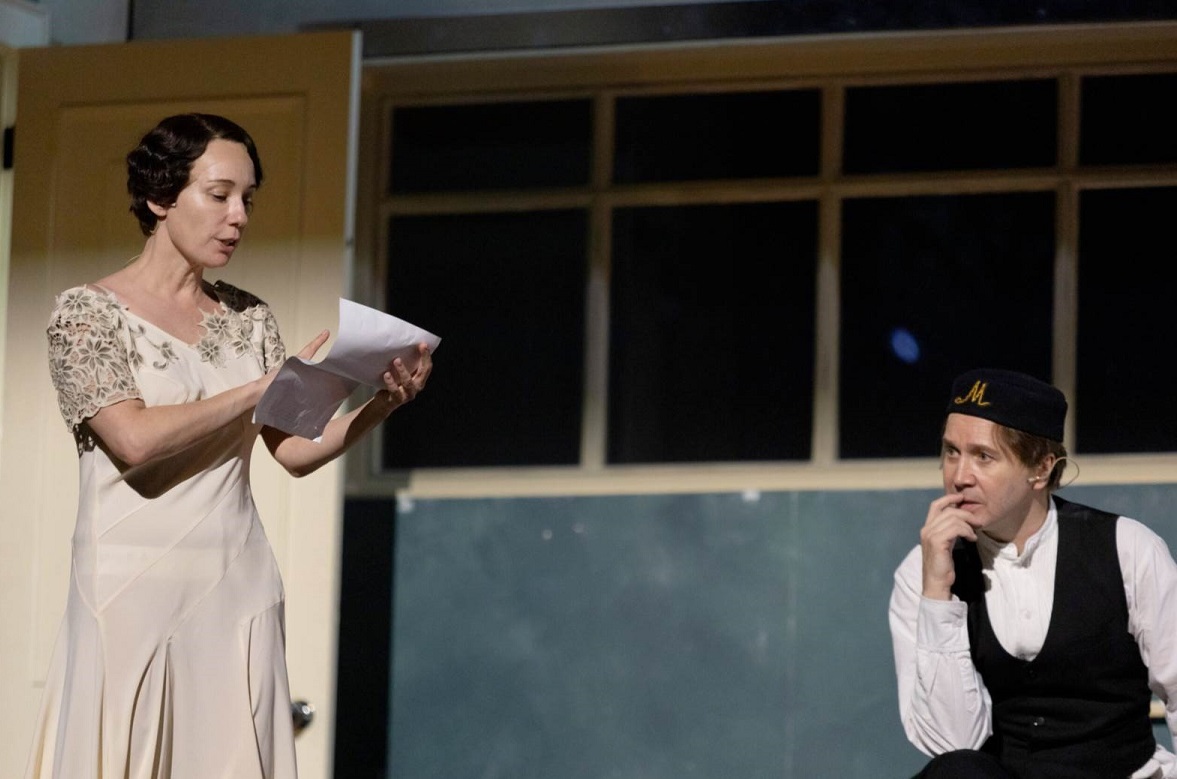The death of Russian theatre
A staple of Russian national culture is also among the victims of the "special military operation" in Ukraine. With directors, actors and dancers forced to succumb to belligerent propaganda or lose the work to which they have dedicated their lives.
Moscow (AsiaNews) - The journalist and commentator Valerij Panjuškin has launched a cry of alarm from the pages of the "Sistema" website for the sad end of the theater in Russia, a glory of national culture which is now forced to succumb to the belligerent propaganda of the regime putinian.
Many artists and directors opposed to the war in Ukraine have already left the country, the works of "unsafe" authors are removed from the repertoires, and the names of "unreliable" screenwriters are erased from billboards and theater programs.
The shows where there are actors who have expressed themselves in dissonant ways with respect to the special military operation are also closing, and those who remain in Russia prefer to remain silent, even if even this may not be enough: explicit support for the policy is often requested official.
The protagonists of the world of culture must find creative ways to affirm "traditional values", to tarnish enemies and unmask traitors; many do it with sincere enthusiasm, but most limit themselves to allusions.
Leading this "cultural mobilization" is not even the ministry of culture, but the armies of Telegram channels and other social media, which "play a role in Russian culture similar to the one entrusted to oracles in ancient Greece", observes Panjushkin .
The journalist recalls a series of episodes that have occurred since the beginning of the invasion of Ukraine, such as when on February 24, 2022, the premiere of the show Maskarad by the ballerina Anna was scheduled in the hall of the Perm academy "Teatre-Teatre" Abalikhina.
In the end, instead of applause and bows, everyone fell silent. Anna herself recalls that "no one felt like justifying the war, neither the artists nor the spectators, it is not normal to celebrate terror and tragedies".
The actors argue among themselves whether it is right to go on stage in these conditions, as a famous actress, Čulpan Khamatova explains, "we discussed it at length with Ženja Mironov" (another star of the Russian theatre), "who was trying to convince me while we were about to come out with the 'Master and Margarita' that we cannot betray our audience, especially the younger one, let's at least try to convey values greater than war”.
Khamatova decided to board a plane for Latvia, and only after getting off did she write to Mironov that she would not return, and now she works at the New Theater in Riga, where she has also managed to get the daughters of she.
Many others fled immediately after the start of the war, such as the director Dmitry Krymov, who flew to Philadelphia, where he immediately staged the Chekhovian "Cherry Orchard" at the Wilma Theater.
Abalikhina had stayed, but in September last year she phoned the sponsor of her dance shows, saying: "Sorry, I can't take it anymore!". A little later the director of the theater, Svetlana Guzij, intervened in support of the military operation, putting a large letter Z on the facade of the theater. The dancer thought "at least she won't be in my name", despite having lost her job and earnings.
For others she fared worse, having to pay heavy penalties for the suspension of the shows, or even ending up in jail. Mironov, one of the most representative figures of the whole Russian theatrical world, does not speak to non-state and non-Russian journalists, to try to save the Theater of Nations in Moscow; “For him, that room is his whole life”, assure his friends.
He had gotten the theater under management in 2006 when it was practically falling apart, looking for money for the restoration and purchase of modern theater machinery; the first shows, such as "Pushkin's Tales", were rehearsed by the artists in the bars of the area, due to lack of space.
The best actors have gathered there for years: Julia Peresild, Ksenja Rappoport, Andrej Smoljakov and others, with directors of the level of Andrej Mogučij, Timur Bekmambetov, Stefan Braunschweig, Robert Wilson, and precisely the Canadian version of the "Master and Margarita" Robert Lepage was considered an absolute masterpiece even by critics.
Until the arrests of leading stars such as that of Evgenija Berkovič, who was convicted of "instigating terrorism" for her "Finist, the White Crow". As Panjushkin concludes, "then almost all Russian directors and actors must be considered terrorists, and we are now very close to this final outcome". The Russian theater is disappearing from the scene in the cold of war.
07/02/2019 17:28
11/08/2017 20:05







.png)











